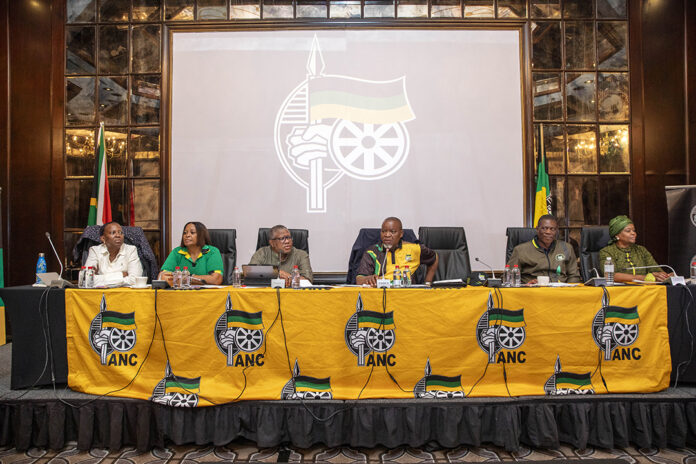In a candid admission, the ANC has acknowledged a critical misstep in its post-apartheid strategy by underestimating the resilience and adaptability of apartheid-era forces.
The strategic error continues to haunt the ANC and South Africa, shaping the socio-economic and political landscape in ways the party failed to anticipate.
When apartheid ended in 1994, the ANC believed it had decisively defeated the forces that upheld the system. But this assumption proved wrong.
“We made a strategic error in 1994 in assuming that apartheid forces had been decisively defeated and would never regain influence. Instead, they regrouped in new guises,” the ANC admits in its discussion document for its fifth national general council scheduled for December this year.
In the document, the ANC’s said it s failure to anticipate the regrouping of apartheid forces left the door open for them to undermine the party’s transformative agenda.
Today, it stated, South Africa remains one of the most unequal societies in the world. The country’s Gini coefficient, a measure of income inequality, stands at 0.67 – higher than fellow Brics states such as Brazil (0.53) and China (0.38).
“The structure of the economy continues to entrench these disparities,” the party states.
The document states that the legacy of apartheid is also evident in land ownership patterns, wage gaps, and unemployment rates. The average white household earns almost five times the income of the average African household.
These disparities, it states, are not just economic; they are deeply political, striking at the heart of the ANC’s promise to deliver a better life for all.
The party also highlights the role of neoliberal economic policies, which were adopted in the mid-1990s and have been criticised for favouring elite interests over broad-based development.
“We effectively chose a neoliberal path in the mid-1990s – abandoning the RDP’s radical programme,” the ANC reflects. This shift allowed apartheid-era economic structures to persist, entrenching inequality.
The party admits that its practices, including its membership system, election processes, and cadre deployment, made it vulnerable to infiltration and manipulation.
The ANC also acknowledges the need to critically evaluate its governance failures, including corruption and incompetence, which have eroded public trust.
“Corruption, poor service delivery and incompetence have eroded the legitimacy and authority of the democratic state,” the party states.
The ANC is proposing a series of bold solutions, among them the need for ideological and organisational renewal to correct past mistakes and advance its transformative agenda.
“Renewal has become a strategic question on which the fate of the national democratic revolution depends,” it stated. The party proposes adopting bold anti-poverty measures, including a mass public employment drive, a basic income support grant and comprehensive food security initiatives.
The ANC calls for stronger progressive taxation, wealth taxes, and mechanisms like a living wage campaign to reduce income disparities.
The party recognises the need to rebuild trust with South Africans by forging a renewed pact with communities, unions, civics and NGOs.
“The ANC must forge a renewed pact [with communities]to fight poverty and inequality,” the document states.



